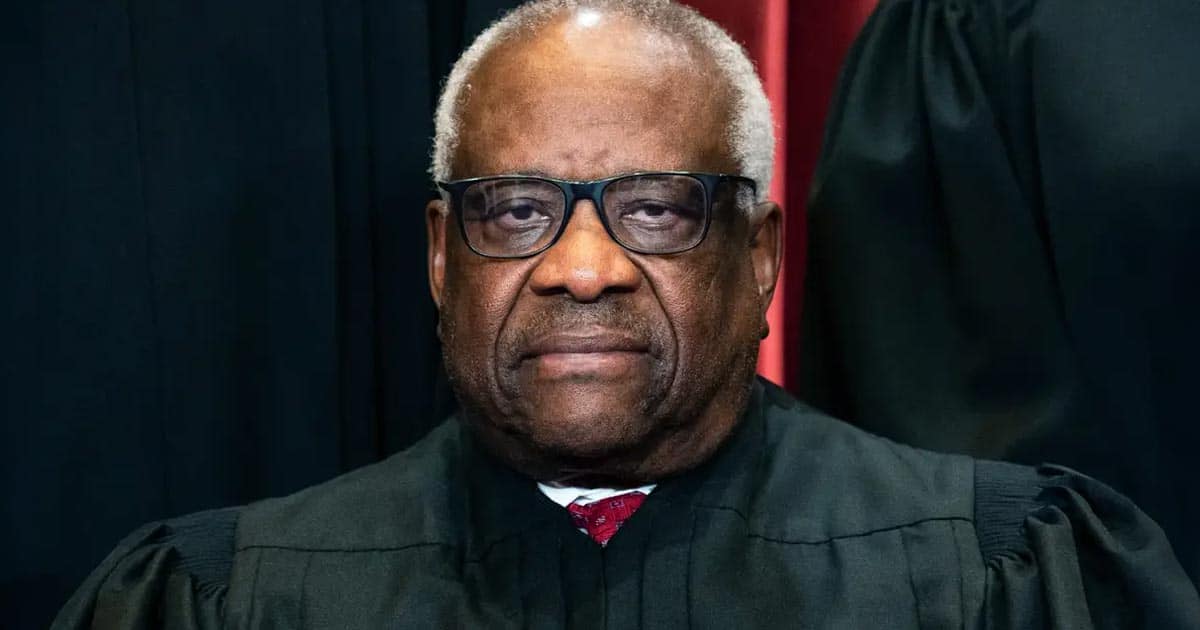The Supreme Court has signaled that it may be about to deal a massive blow to the Democrats by ending the practice of race-based redistricting.
The tactic has helped Democrats pad their margins in the House of Representatives for decades.
In an order on Friday, the court expanded the scope of a case on the Voting Rights Act in Louisiana.
The justices asked the parties to submit briefs on “whether the State’s intentional creation of a second majority-minority congressional district violates the Fourteenth or Fifteenth Amendments to the U. S. Constitution.”
Although considered critical to democracy by some, the Voting Rights Act is controversial because it forces states to consider race in order to protect the voting power of minorities.
Under certain circumstances, Section 2 of the law requires minority groups to receive their own districts, where they are essentially guaranteed to elect candidates of their choice.
While some majority-minority districts have Republican representatives, race-based redistricting tends to benefit primarily Democrats.
The current dispute over Louisiana’s districts has been brewing for years.
Challengers successfully struck down the state’s original map as discriminatory because it allowed black voters, who make up a third of the state’s population, to elect a candidate of their choice in one district out of six.
Louisiana’s new map, which has two black-majority districts, was challenged by “non-African American voters” who say it constitutes a racial gerrymander.
A federal court agreed, finding the map violates the 14th Amendment’s Equal Protection Clause.
Nevertheless, the Supreme Court allowed the map to be used for 2024’s elections.
The Supreme Court was originally expected to resolve the case this year.
However, the justices said in June that they would hear new arguments next term before making their decision.
In a similar fight out of Alabama, the Supreme Court surprisingly upheld Section 2’s protections, forcing the state to draw a second black-majority district for the 2024 cycle.
Even still, some of the justices signaled at the time that race-based redistricting cannot be a permanent solution to discrimination.
As Brett Kavanaugh then noted, “even if Congress in 1982 could constitutionally authorize race-based redistricting under §2 for some period of time, the authority to conduct race-based redistricting cannot extend indefinitely into the future.”
By expanding the Louisiana case, the justices may have given their strongest hint yet that they believe race-based redistricting should end.
The Supreme Court weakened the Voting Rights Act in Shelby County v. Holder, when the court effectively ended a requirement for some states and localities to get federal “pre-clearance” before changing their voting procedures.
The court found that the formula used to determine which states were covered by the provision was no longer appropriate decades after Jim Crow ended.
Critics of race-based redistricting see it as almost a form of affirmative action applied to elections.
Supreme Court Justice Clarence Thomas, for example, has chafed at the notion that the Voting Rights Act requires proportional representation of minority groups in Congress.
Thomas asserts that this interpretation turns the law into “nothing more than a racial entitlement… wherever different racial groups consistently prefer different candidates.”
READ MORE – Tulsi Gabbard to Release Evidence Showing U.S Intelligence Helped Rig 2020 Election

Our comment section is restricted to members of the Slay News community only.
To join, create a free account HERE.
If you are already a member, log in HERE.